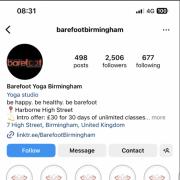
As young people, especially sixth formers, there is constant pressure to know what to do after school. Whether that may be from parents or guardians constantly hounding you, those Aunts and Uncles who always curious and maybe even some friends, it is near to impossible to go a week without a question being thrown your way about your future. Some of us may know how to answer that question, perhaps you want to go into medicine or you’ve got your heart set on computing. However, for the majority, we are clueless.
Whilst this may not be a huge problem at GCSE, what we do at sixth form can impact our future heavily. From the subjects you pick to the extra-curricular activities you do, everything builds up to potentially university, an apprenticeship or getting a full-time job. This is a whole lot of pressure for 16-18-year-olds and can heavily affect how we are at school and our mental health. I interviewed two young adults, both of them in university about how they handled the pressure and how they figured out their next steps.
There is a light at the end of the tunnel and you’re capable of making it there. - Nadine T
Everyone has different experiences when it comes to sixth form/college, but for Nadine she described it as “a rollercoaster”, moving to a white male-dominated school as a black woman was something that Nadine recalls finding it hard to “fit in” as well as being exposed to the clear distinction that to the internal cohort of the Sixth Form “she would always be an external”. The workload was a massive change for her and she exclaimed that “the jump from GCSE’s to A-Levels was crazy!”, a phrase that most sixth formers can heavily relate to. Revealing candidly about the struggles she felt due to her Sixth Form requirement grades of four B’s, Nadine recounts that she was “outwardly strong but internally had a lot of stress and anxiety.” but did mention that she did have some “fun times” during her time in Sixth Form.
Whilst Nadine knew she wanted to go to medical school in Sixth Form, she did mention that to come to this conclusion she took work experience at a hospital as well as watching “a lot of TED talks” to help her find out more about medicine. Methods that Sixth Formers can all take to narrow down what they may want to do in life.
When asked if she had any final advice for Sixth Formers, she simply said: “Your mental health is the most important always and grades do suffer when you don’t take time for yourself.”
An important message for everyone, not just those in Sixth Form.
Planning for University was difficult. - Cecilia Jean
A struggle Jean recounted initially was failing her Biology test. Biology was something she felt “she never had to try in” as well as the shock of failing when she had “never failed before”. This shock was the beginning of a very tough road for Jean. On top of that, Cecilia did not know what she wanted to be during Sixth Form. However, Jean described her method for finally picking her Psychology degree: “I had a criteria for my degree, It had to be scientifically based and I wanted to travel. I saw myself as quite an empathetic person, so naturally, this led to me picking a Psychology degree with a year abroad!”
Jean emphasised the best thing may be to note down everything you want in a degree and what your favoured subject may be. It will help you have a clearer look at what you may find interesting concerning the short term future.
Her final pieces of advice were to remember “it is not a bad thing to not know what’s going to happen”.



























